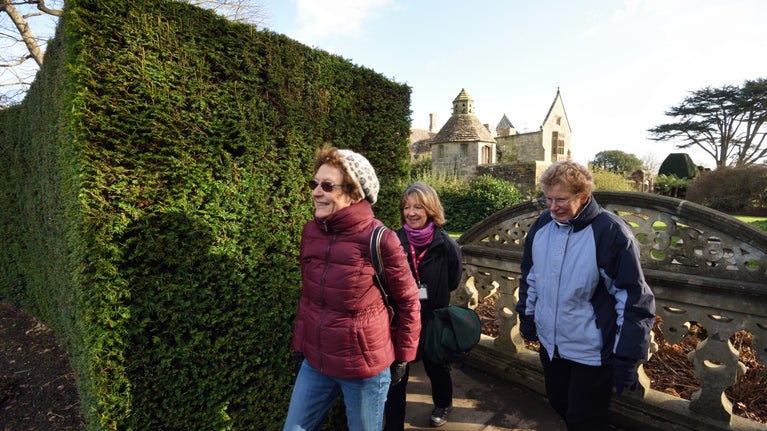
Where will you visit next?
Discover lots of gardens, historic houses, days out at the coast and more.
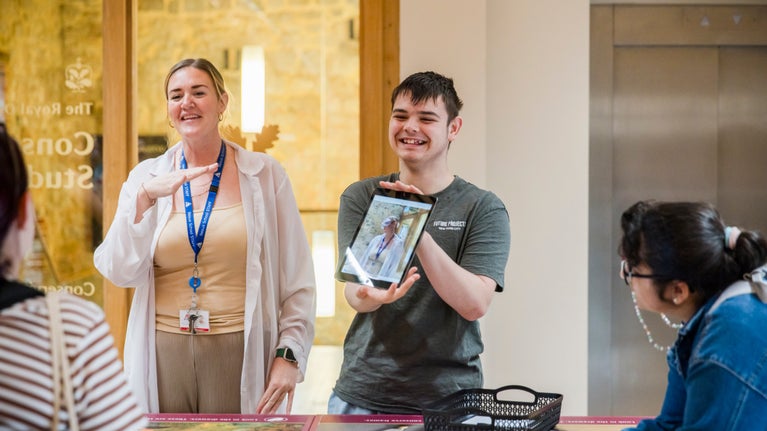
The National Trust is for everyone. We want our disabled visitors to have a great experience with us, and we are always working to improve the accessibility of the places we care for.
We’re continually developing improvements for accessibility which are creative and sensitive to our surroundings. We work collaboratively with disabled people and disability organisations to develop these solutions and welcome comments from our visitors to assist our further improvement.
We've recently started working with AccessAble to introduce digital guides on disabled access for places in our care.
These guides offer thorough information on access points, facilities, and services to help you plan your visits with confidence. Whether you're looking for step-free access, accessible toilets, or parking options, AccessAble's guides will ensure you have the knowledge you need to make the most of your visit.
You'll find them under the 'Accessibility' tabs in the visitor information section of individual place's websites, or you can search directly on the AccessAble website for National Trust or the place's name.
Additionally, you can explore AccessAble's website, which features powerful search tools and user-friendly options like the Recite Me toolbar for text-to-speech, reading support, and language translation. You'll also find a range of searchable icons to help you identify key facilities such as accessible seating or hearing loops.
We recommend checking our property webpages for the latest visitor information, including opening times, alongside the AccessAble guides. If you’d like to visit a specific place and cannot find the answer to your accessibility question, please contact the National Trust place directly.
In this video, join TV presenter, garden designer and long-term member Mark Lane and his dog Dude, as they take a tour around the gardens at Polesden Lacey, Surrey. Discover what the team has been doing to and around the gardens to improve accessibility and create a more inclusive experience.
We ask for your permission before anything is loaded, as this content may introduce additional cookies. You may want to read the Google YouTube terms of service and privacy policy before accepting.
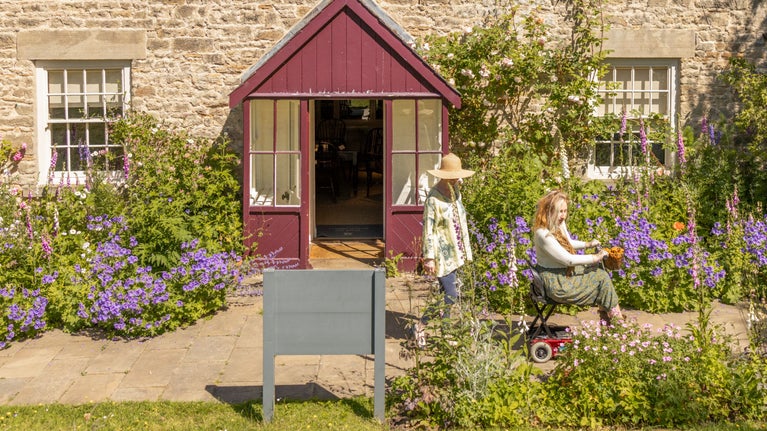
The Essential Companion pass makes it simple to bring one or two carers or companions with you, free of charge. Show the pass when you arrive, and your carer(s) or companion(s) won’t need to pay an entry fee.
It’s in your name so you can bring whoever you like, but even if you don’t have an Essential Companion pass, you can still bring carers or companions free – the passjust makes it quicker and simpler for you.
You can call the Supporter Services Centre on 0344 800 1895. The Supporter Services Centre is open from 9am to 5.30pm, Monday to Friday and 9am to 4pm weekends and bank holidays. Local call rates apply.
You can email us at enquiries@nationaltrust.org.uk with your full name, full address and supporter/member number and someone will get back to you.
If you prefer, you can also write to us. Our address is: National Trust, PO Box 7083, Stratford-Upon-Avon, CV37 1XE.
Please note: if you’re not a National Trust member, you’ll still need to pay for your own entry.
The Links Pass gives half-price entry to groups affiliated with disability charities, day centres, or registered care homes. Carers or companions with the group are welcome free of charge.
It’s valid at participating National Trust places (excluding weekends and bank holidays).
Some helpful details about the Links Pass:
The Links Pass is available to groups affiliated with local and national disability charities, a local authority, currently or previously connected to the NHS, care homes or day centres and other caring charitable groups of this kind.
The pass entitles people within the group who are disabled or of pensionable age to 50 per cent off the standard price of admission. Essential companions, or carers, in the group are given free entry.
All visits must be pre-booked and are available at the discretion of the National Trust property or General Manager.
On applying for the Links Pass, organisers must quote the charity or NHS Trust number and name of their national organisation.
The Links Pass is only renewed on request – each welcome pack includes an application form for the following year.
To order your pass, get in touch with us by phone on 0344 800 1895, email, or write to us at National Trust, PO Box 7083, Stratford-Upon-Avon, CV37 1XE.
Our access information is available in alternative formats. To find out more, please call us on 0344 800 1895.
The National Trust Magazine is available on CD for members from the Royal National Institute of Blind People (RNIB). You can order a copy by contacting the RNIB with your membership number.

Discover lots of gardens, historic houses, days out at the coast and more.
Discover how we strive to increase the accessibility and usability of our website and adhere to many industry standards and guidelines.
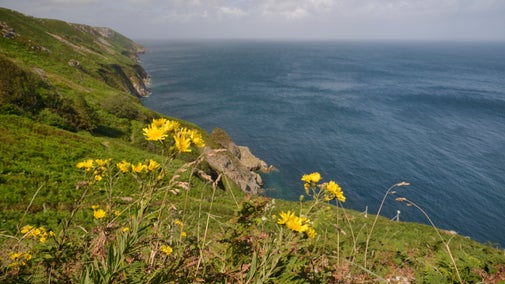
Thanks to the support of our members, we're able to carry out our important conservation work across England, Wales and Northern Ireland. Discover some of the crucial ways that you help us care for nature, beauty and history for future generations.
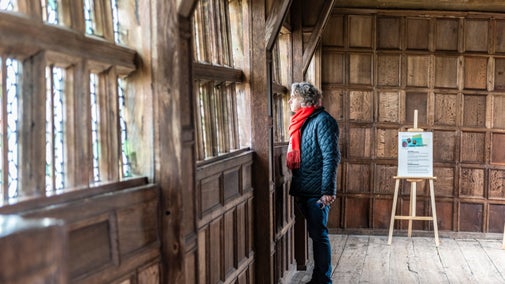
We're committed to meeting the needs and expectations of a diverse society. Find out what we're doing to create an inclusive, accessible and welcoming environment for our supporters, staff and volunteers.
